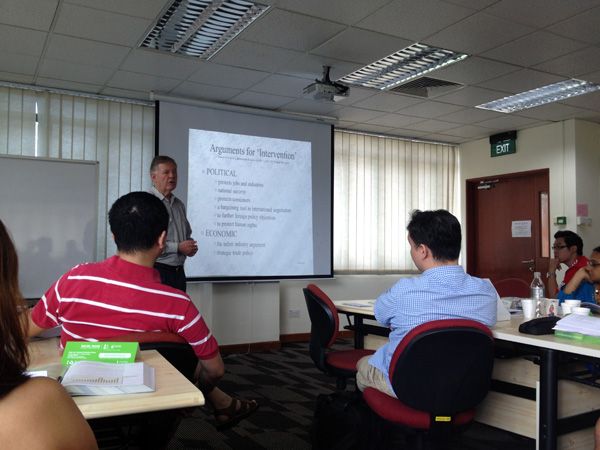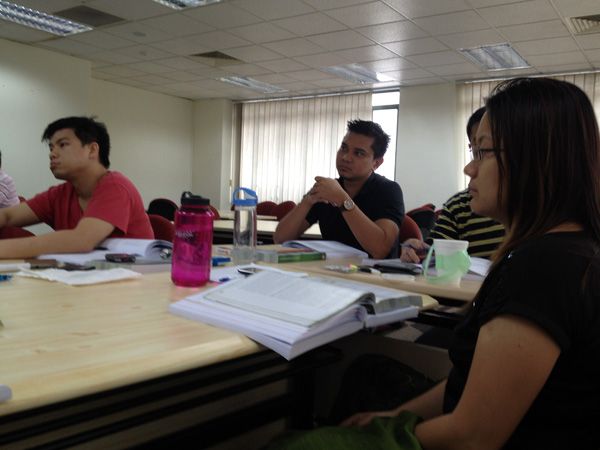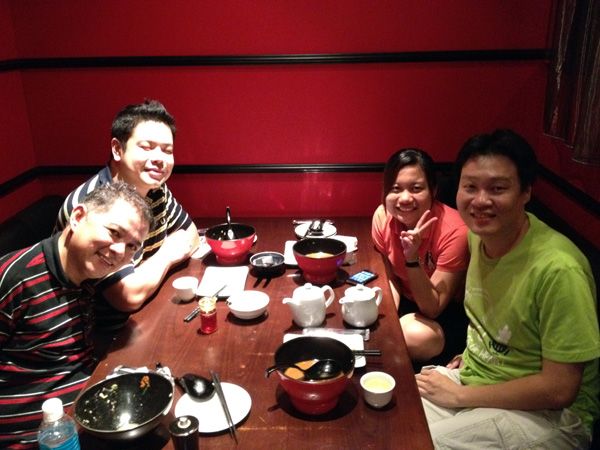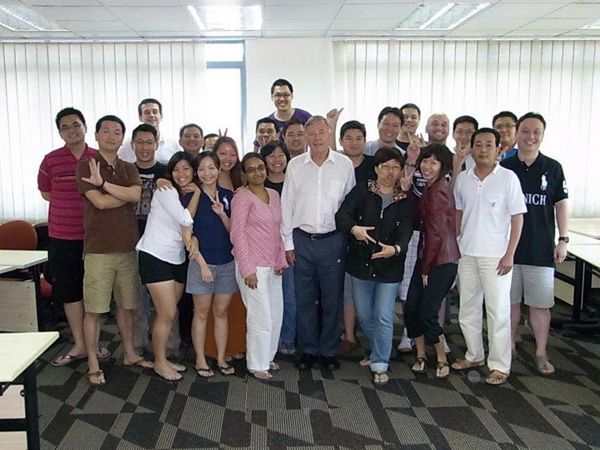Ngee Ann Adelaide organizes forums and workshops several times throughout the year, with speakers and experts coming in from the University of Adelaide and other professional bodies. I have not taken part in any of these events before as my schedule just wasn't right. For the master class that was held on the 23rd July on "Managing Cultural Diversity and Multicultural Teams", I have been persuaded by Lionel to go for it just 2 days before the event. I guess it is also nice to know of familiar faces joining in the forum (e.g. Chris, Lionel, etc).
I made a call to Ngee Ann Adelaide office to sign up and drop them an email on it. For Adelaide students and alumni, there are rebates. This is one of the advantages of being a student or alumni of Adelaide. I attached the brochure in my website below.
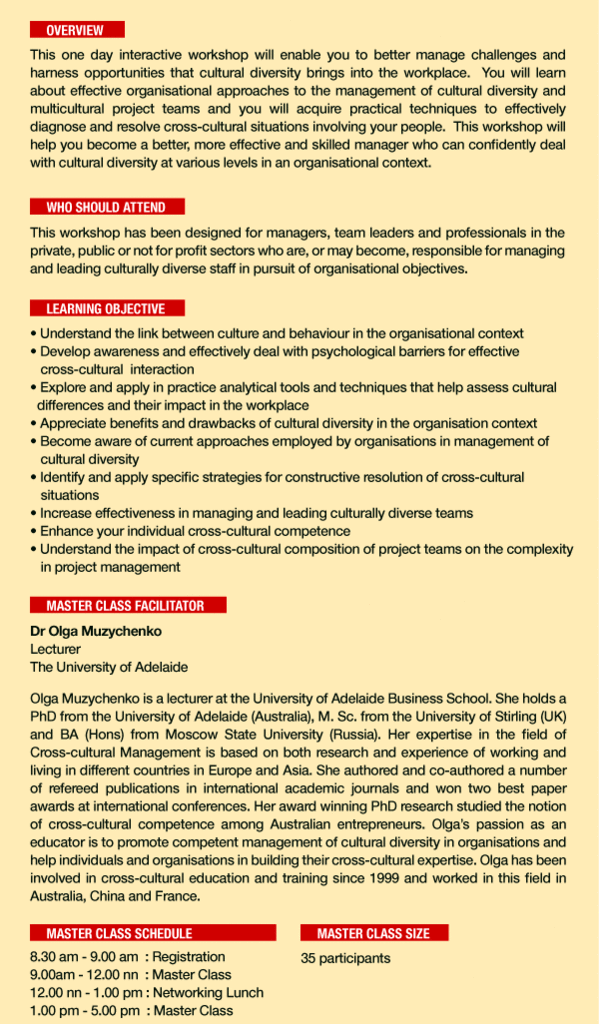
The other reason why I signed up for it is I am particularly fascinated by the topic of cultural diversity. This is something which I face on a day to day basis in my workplace. A large part of cultural insensitivity stems from ignorance. And if we have the tendency of being judgmental all the time, it will be difficult to succeed across culture. The best way of approaching new and different culture is to have a 'fun' and open mindset towards it.
Being positive is also very important as results have shown that positive people achieve much better results in cultural diversity. Though very often, we may fall into homophily or group-thinking. We delve into concepts by Richard Lewis of "linear", "multiactive" and "reactive" worlds in his book "when cultures collide".
From this course we acquire the knowledge and the skills. So how do we translate directly into behaviour? It is through motivation and attitude.
There are 16 participants in the workshop and we are split into 4 groups. We had several group discussions and one of which is on how our company manage cultural diversity. The modern organisation of virtual teams was also discussed and from this topic, I learnt about the importance of frequent and more direct communication.
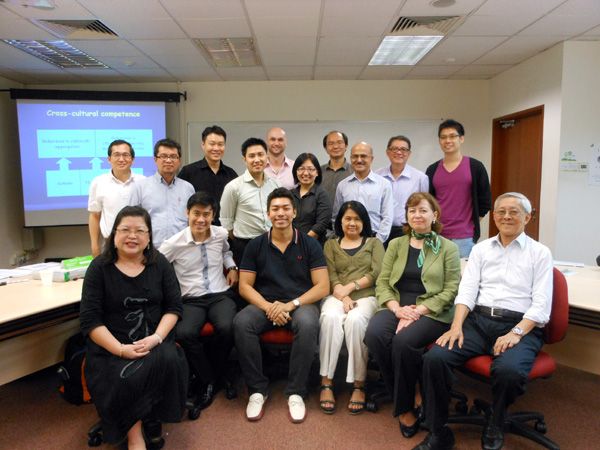
The workshop finished at 5.30pm (30mins later than the original designated time). We are all alright with it as there were lots of discussions going on. We took a group photo and we have Dr Olga sitting second from right. The participants come from diverse background such as Microsoft, Mariott, Cisco, Panasonic, Johnson, Nippon Express, OnlineCitizen and so on with headhunters, magazine editors amongst them. It has been a great workshop and I look forward to joining more of such.
I made a call to Ngee Ann Adelaide office to sign up and drop them an email on it. For Adelaide students and alumni, there are rebates. This is one of the advantages of being a student or alumni of Adelaide. I attached the brochure in my website below.

The other reason why I signed up for it is I am particularly fascinated by the topic of cultural diversity. This is something which I face on a day to day basis in my workplace. A large part of cultural insensitivity stems from ignorance. And if we have the tendency of being judgmental all the time, it will be difficult to succeed across culture. The best way of approaching new and different culture is to have a 'fun' and open mindset towards it.
Being positive is also very important as results have shown that positive people achieve much better results in cultural diversity. Though very often, we may fall into homophily or group-thinking. We delve into concepts by Richard Lewis of "linear", "multiactive" and "reactive" worlds in his book "when cultures collide".
From this course we acquire the knowledge and the skills. So how do we translate directly into behaviour? It is through motivation and attitude.
There are 16 participants in the workshop and we are split into 4 groups. We had several group discussions and one of which is on how our company manage cultural diversity. The modern organisation of virtual teams was also discussed and from this topic, I learnt about the importance of frequent and more direct communication.

The workshop finished at 5.30pm (30mins later than the original designated time). We are all alright with it as there were lots of discussions going on. We took a group photo and we have Dr Olga sitting second from right. The participants come from diverse background such as Microsoft, Mariott, Cisco, Panasonic, Johnson, Nippon Express, OnlineCitizen and so on with headhunters, magazine editors amongst them. It has been a great workshop and I look forward to joining more of such.
